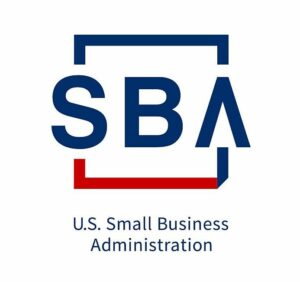The London Stock Exchange’s Proposal for Private Company Trading

The Wall Street Journal reported exclusively on plans by the London Stock Exchange to create a special market for the shares of private companies for limited public trading. The plan itself is not yet public, so the Journal was only able to report on limited aspects of what is contemplated. In the same way that U.S. private companies have increasingly been able to access public-like markets with new exemptions like Regulation CF, Rule 506(c) and Regulation A+ and the development of secondary trading markets for large private companies, this is an effort across the pond to provide some of the benefits of public market access to small and fast-growing companies.
…The London Stock Exchange’s Proposal for Private Company TradingRead More »
The London Stock Exchange’s Proposal for Private Company Trading Read More »

 I have found over my 23 years of law practice that, assuming I’ve consumed my usual copious amount of coffee, I can be quite productive and efficient when I get into a flow. When that flow is interrupted – by a phone call, someone popping into my office for a quick question, a car alarm going off, etc. – it can be difficult to get back into the groove. The good news is that a number of workplace trends in recent years have resulted in a general decline in interruptions, leading to more efficient work.
I have found over my 23 years of law practice that, assuming I’ve consumed my usual copious amount of coffee, I can be quite productive and efficient when I get into a flow. When that flow is interrupted – by a phone call, someone popping into my office for a quick question, a car alarm going off, etc. – it can be difficult to get back into the groove. The good news is that a number of workplace trends in recent years have resulted in a general decline in interruptions, leading to more efficient work. The Small Business Administration (SBA) has just launched the Paycheck Protection Program (PPP), arranging for forgivable loans to small businesses affected by COVID-19. There are, however, widespread implementation issues, with several banks that will administer the loans not yet being ready to process loan applications, as of April 6, 2020. For general guidance on the program, I can provide you with this
The Small Business Administration (SBA) has just launched the Paycheck Protection Program (PPP), arranging for forgivable loans to small businesses affected by COVID-19. There are, however, widespread implementation issues, with several banks that will administer the loans not yet being ready to process loan applications, as of April 6, 2020. For general guidance on the program, I can provide you with this  Every deal lawyer has had the experience. The deal negotiations have gone on longer than anyone expected. Frustration is setting in. At that point, one of the individuals involved, more likely to be one of the principals instead of an attorney, demands an all-hands, in-person meeting to get the deal done, and “we’re not leaving until we have a deal.” This impulse, while understandable, is often misguided and can lead to additional frustration.
Every deal lawyer has had the experience. The deal negotiations have gone on longer than anyone expected. Frustration is setting in. At that point, one of the individuals involved, more likely to be one of the principals instead of an attorney, demands an all-hands, in-person meeting to get the deal done, and “we’re not leaving until we have a deal.” This impulse, while understandable, is often misguided and can lead to additional frustration. Writing in Above the Law, Jordan Rothman argues from personal experience that
Writing in Above the Law, Jordan Rothman argues from personal experience that  In some ways, my law firm, Andrew Abramowitz, PLLC, is at the forefront of recent changes in the delivery of legal services. For example, the firm operates virtually, with the staff attorneys toiling away at home (or wherever – they could be doing it while hang-gliding as long as they do the job well and promptly, as far as I’m concerned). The ability to get the work done without housing everyone in an expensive Manhattan leased space gives the firm flexibility to offer more competitive rates than traditional firms.
In some ways, my law firm, Andrew Abramowitz, PLLC, is at the forefront of recent changes in the delivery of legal services. For example, the firm operates virtually, with the staff attorneys toiling away at home (or wherever – they could be doing it while hang-gliding as long as they do the job well and promptly, as far as I’m concerned). The ability to get the work done without housing everyone in an expensive Manhattan leased space gives the firm flexibility to offer more competitive rates than traditional firms. When I am estimating costs for a project for prospective clients, particularly those new to the formation of business entities and deal-doing, a common source of confusion is why there needs to be a fee paid to my law firm as well as to a corporate service company like CT Corporation or CSC. So, I thought it would be useful to briefly outline the different roles that each of us plays in the creation and maintenance of entities.
When I am estimating costs for a project for prospective clients, particularly those new to the formation of business entities and deal-doing, a common source of confusion is why there needs to be a fee paid to my law firm as well as to a corporate service company like CT Corporation or CSC. So, I thought it would be useful to briefly outline the different roles that each of us plays in the creation and maintenance of entities. I am very much a member of the target audience of Billions, the Showtime drama about the intersection of law and finance in New York. As a corporate lawyer with the professional background to decipher at least some of the dense jargon, I sometimes have to suspend disbelief at the plot twists, including a U.S. Attorney who doesn’t recuse himself from a criminal investigation of a hedge fund that employs his wife, as well as a coordinated FBI mass arrest of politicians at a funeral service.
I am very much a member of the target audience of Billions, the Showtime drama about the intersection of law and finance in New York. As a corporate lawyer with the professional background to decipher at least some of the dense jargon, I sometimes have to suspend disbelief at the plot twists, including a U.S. Attorney who doesn’t recuse himself from a criminal investigation of a hedge fund that employs his wife, as well as a coordinated FBI mass arrest of politicians at a funeral service.